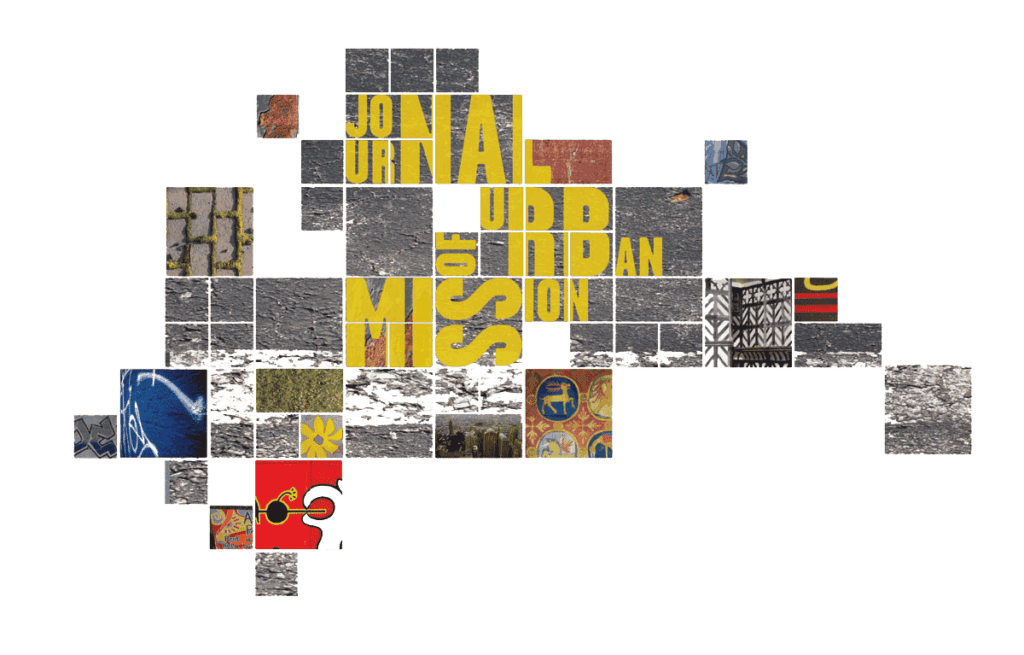Response to Desiree Guyton’s Presentation at May 4, 2022 Colloquium
Part of Educating Urban Ministers in Philadelphia After 2020 project
Presentation Question: What are the mental health needs of urban communities, and how do Christian congregations shift to address them?
Although some precedent literature highlights that there are mental health benefits for people living in urban communities,1 it is commonly known that there are many factors and stressors (e.g., poverty, high levels of violence/crime, low perceived social support)2 in urban communities that are associated with mental health issues. The global pandemic (i.e., COVID-19) that began in March 2020 for the U.S., had exacerbated the stressors in the urban community. As such, Guyton explored two main questions in her paper with the onset of the pandemic: 1) What are the mental health needs of the urban communities? and 2) How do Christian congregations shift to address growing mental health needs? To examine these questions, Guyton interviewed four urban community pastors and discussed her findings.
From the interviews, Guyton reported how the pandemic had sharply impacted the pastors and their parishioners in the urban community. Through these interviews, Guyton shed more light on the psychosocial and environmental conditions of suffering. She noted that pastors reported feeling overwhelmed, anxious, and stressed out. Pastors described needing more help to care for their parishioners who exhibited elevated mental health struggles, faced increased struggles in their own families, and even experienced the desire to quit their job. Not only did the pandemic impact the urban community pastors, but also their parishioners. Pastors disclosed how their parishioners were experiencing significant anxiety and stress due to increased gun violence, food insecurities, deep financial distress, and significant losses and grief. In addition, pastors highlighted how the pandemic negatively impacted the youth in the urban community as it related to their education, high anxiety levels, and experiences of isolation. Given the significant impact of the pandemic upon pastors, parishioners, and the youth of the urban community, Guyton made it clear that there are increasing mental health issues that Christian congregations need to address.
Along with the interviews with pastors and her own perspectives as a licensed professional counselor and pastor, Guyton presented a pertinent proposal for how churches can shift to respond to the growing mental health needs. The proposal included the following headings: 1) Leadership care, 2) Come together and come to God, 3) Pastor’s support groups and modeling, 4) Change the narrative about mental illness, 5) Treat mental illness like physical illness, 6) Build a missional trauma healing ministry, 7) Care for the entire family, and 8) Christian counseling referral list and relationship building. While reading the proposal, I found myself reflecting on how important Guyton’s points were, with respect to addressing key barriers to seeking/receiving counseling for mental health issues for particular communities.
Although there is an increased need for counseling among pastors and parishioners in urban communities exacerbated by the pandemic, among specific communities (i.e., communities that have been more impacted by poverty/financial distress and violence, and communities of color) historically there have been significant barriers to seeking/receiving appropriate mental health counseling. Some of the common barriers for diverse populations include the following: stigma/shame associated with seeking help for mental health issues; lack of insurance/funding; history of discrimination/prejudice that has built mistrust with local agencies; and lack of culturally competent trained counselors.3
The proposal presented by Guyton addresses some of these barriers. First, Guyton stressed the importance of pastors seeking counseling, since this not only helps them in their needs, but it also sets an example for their parishioners. Pastors, along with their parishioners live in this fallen world and in lowly bodies as we await Christ’s return. Paul reminds us that, “our citizenship is in heaven, and from it we await a Savior, the Lord Jesus Christ, who will transform our lowly body to be like his glorious body, by the power that enables him even to subject all things to himself” (Phil. 3:20-21, ESVB). Until we are with our Lord in heaven, and until our bodies are transformed to be like Christ’s glorious body, pastors, like their parishioners, will face much psychosocial and environmental hardship that will require wise counseling. A pastor’s example of seeking counseling can normalize and reduce the stigma and shame that is often associated with it. This stigma and shame linked to counseling stands in contrast to what Proverbs 1:5 says in regard to seeking counsel, “A wise person will hear and increase in learning, and a person of understanding will acquire wise counsel” (NASB). Scripture elevates the acquiring of wise counsel!
Second, not only is stigma/shame a barrier to seeking counseling for specific urban communities, so also is lack of insurance or funding. Guyton’s proposal for churches to build a missional healing trauma ministry can be a helpful way to make counseling more accessible to urban community members. There is significant trauma (e.g., racial trauma, intergenerational trauma) for communities of color. Thus building a missional healing trauma ministry in the church, led by trained people who understand this kind of trauma, can offer healing for parishioners in an accessible way. And even more importantly, building a missional healing trauma ministry in church can help to connect those who suffer know the great healer, Jesus Christ our Savior, who weeps with the sufferer, hears their grief/lament, and abides with them.
Third, a further barrier to counseling aid for urban communities that Guyton’s proposal may address is the distrust that has historically existed within the members of the communities and the agencies/organizations that offer the services. Although the pandemic is a collective trauma, it has exposed and exacerbated racial and historical traumas for urban communities of color. For example, African Americans were disproportionately affected by COVID-19-related disease and death due to social, political, economic, and environmental injustice; and these inequities were exacerbated by institutional distrust.4 This distrust has been built due to historical experiences of untrustworthiness of organizations and institutions. When Guyton discussed the importance of the church creating/building a referral list in her proposal, she also emphasized making connections with agencies and building relationships with them. This more thoughtful approach to building a referral list can connect parishioners to counselors who are diverse, more culturally competent, and sensitive to faith. Hence, churches getting to know the various agencies and building relationships while building a referral list can help to reduce this historical barrier (i.e., untrustworthiness/mistrust) to counseling.
On a final note, while Guyton shed more light on the impact of the pandemic on mental health issues faced by the urban community (i.e., specifically pastors and their parishioners) and provided a pertinent proposal for how churches can shift to respond to the increasing mental health needs, it would be appropriate to add that not only should churches shift to address the mental health needs of the urban community, but so also should counseling training organizations (e.g., Missio Seminary). It is clear from Guyton’s presentation that there is great need for mental health aid in specific urban communities (i.e., communities that have been more impacted by poverty/financial distress, and violence, and communities of color). Counseling training organizations need to continuously examine, re-examine, then evaluate some more how their training practically implements God’s call “to do justice” (Micah 6:8, ESVB) and is missionally oriented. Although providing a proposal as to how institutions and organizations that provide counseling training ought to incorporate this justice and missional orientation is beyond the scope of this peer review, the practice of sober examination is necessary.
Notes
1 T. Littman, “Urban Sanity: Understanding Urban Mental Health Impacts and How to Create Saner, Happier Cities,”. Urbanet, February 16, 2017, https://www.urbanet.info/urban-sanity/.
2 K. Srivastava, “Urbanization and Mental Health,” Industrial Psychiatry Journal 18, no. 2 (2009): 75-6, https://www.industrialpsychiatry.org/text.asp?2009/18/2/75/64028.
3 American Psychiatric Association, “Mental health disparities: Diverse populations,” 2017, https://www.psychiatry.org/File%20Library/Psychiatrists/Cultural-Competency/Mental-Health-Disparities/Mental-Health-Facts-for-Diverse-Populations.pdf.
4 A. L. Best et al., “Institutional Distrust among African Americans and Building Trustworthiness in the COVID-19 Response: Implications for Ethical Public Health Practice,” Journal of Health Care for the Poor and Underserved, 32, no. 1 (February 2021): 90–98, https://doi.org/10.1353/hpu.2021.0010.


